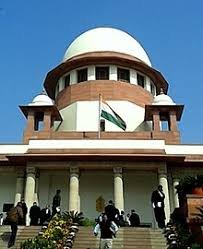The petitioners, including P. Krishna Mohan Reddy, sought anticipatory bail after the High Court of Andhra Pradesh denied their plea.
The alleged offences include criminal breach of trust, cheating, and criminal conspiracy under the Indian Penal Code, 1860 (now Sections 316(5), 318(4), 61(2), 3(5) & 3(8) of the Bharatiya Nyaya Sanhita, 2023), and various sections of the Prevention of Corruption Act, 1988 (Sections 7, 7A, 8, 13(1)(b) and 13(2)).
The allegations stem from a committee report detailing suppression of popular liquor brands, unfair discrimination in allocation, manipulation of procurement, and compromise of integrity at APSBCL. A case was recommended and subsequently registered.
The High Court’s denial was based on its finding of a prima facie case and the need for custodial interrogation.
Petitioners alleged “third-degree methods” used by the investigating agency and claimed the case was motivated by “political bias or mala fides”.
Law Involved
The primary legal provisions relate to the denial of anticipatory bail.
Sections 409, 420, 120-B of the Indian Penal Code, 1860, and Sections 7, 7A, 8, 13(1)(b) and 13(2) of the Prevention of Corruption Act, 1988, are the substantive criminal laws under which the offences are registered.
The principles governing the grant or denial of anticipatory bail, particularly balancing individual liberty with the demands of a criminal investigation, are central.
The judgment also delves into the interpretation and application of Section 30 of the Indian Evidence Act, 1872, regarding the admissibility of disclosure statements by co-accused, and its interplay with Section 161 of the Code of Criminal Procedure, 1973 (statements recorded by police).
Reasoning
The Supreme Court observed that the High Court had found a “more than a prima facie case” against the petitioners, involving a “well-hatched criminal conspiracy” and alleged misappropriation of public funds amounting to “Rs. 3,000 Crore” or “Rs.3200 Crores in kickbacks”.
The Court stressed that the investigation was at a “very crucial stage”. Granting anticipatory bail at this point could “greatly harm the investigation” and “impede the prospects of unearthing the ramifications involved in the conspiracy”, causing public interest to suffer.
The Court concurred that “custodial interrogation is deemed essential to confront the petitioners” with collected evidence and to “unravel a broader conspiracy”.
Regarding the petitioners’ claim of “political bias or mala fides”, the Court noted that while it is a consideration, it “is not sufficient for the grant of anticipatory bail” if a prima facie case is established and the allegations are not frivolous.
The Supreme Court extensively clarified the law on statements under Section 161 Cr.P.C. and Section 30 of the Evidence Act. It held that statements under Section 161 Cr.P.C. are generally inadmissible as evidence and cannot be the sole basis for denying bail. Specifically, confessional statements of a co-accused cannot be used for the purpose of framing charges without other evidence. The Court highlighted that the High Court’s reliance on co-accused statements under Section 30 of the Evidence Act for denying bail was “erroneous” for that purpose. However, this legal clarification on the admissibility of certain statements did not alter the ultimate decision to deny anticipatory bail due to the severe nature of the alleged crime and the ongoing investigation.
The Court also noted that if petitioners apprehended “ill-treated” or “third-degree methods”, they could approach the High Court for appropriate relief.
Holding
The Supreme Court dismissed the Special Leave Petitions, thereby upholding the High Court’s decision to deny anticipatory bail to the petitioners.
The Court affirmed that the petitioners are not entitled to anticipatory bail.
Regarding the specific petition where a petitioner had already been arrested (SLP (Crl.) No. 7534/2025), the Supreme Court noted that the decision concerning judicial or police remand lies with the concerned court.
P Krishna Mohan Reddy V. State Of Andhra Pradesh
Supreme Court: 2025 INSC 725: (DoJ 16-05-2025)






